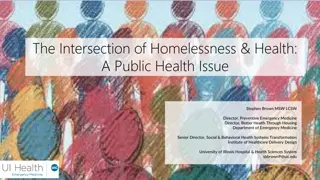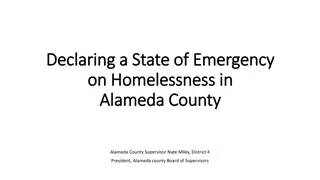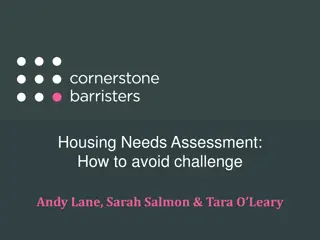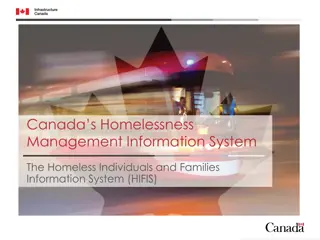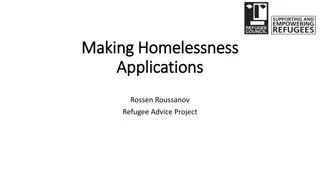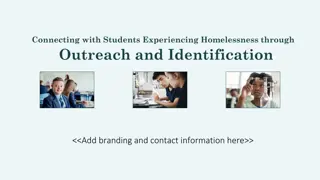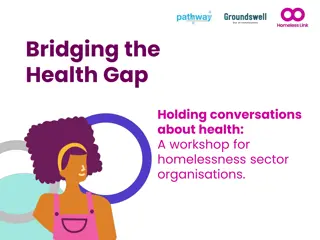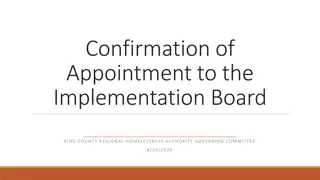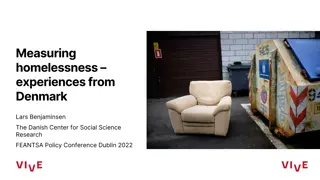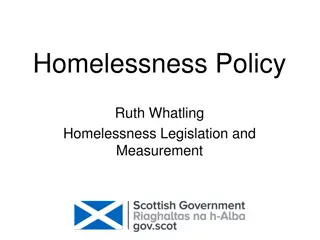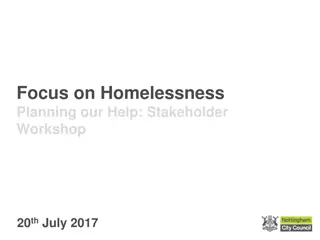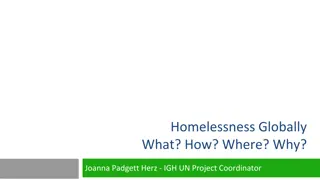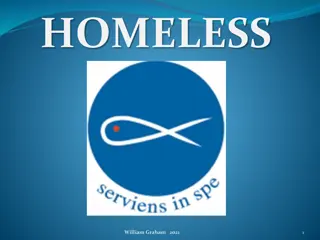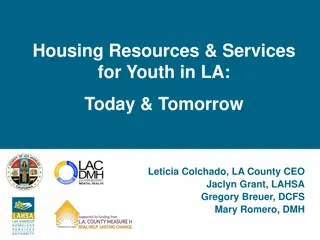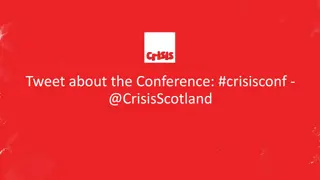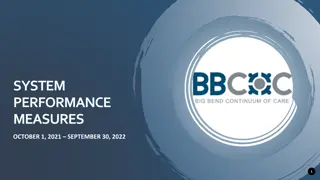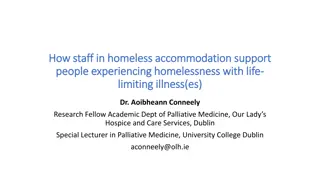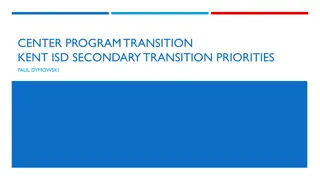PATH Program for Transition from Homelessness
The PATH Program, created under the McKinney-Vento Act, provides assistance in transitioning individuals from homelessness by funding States and Territories to support those with mental illnesses or at risk of becoming homeless. It targets individuals with low/no income, serious mental illness, or imminent risk of homelessness, aiming to find permanent housing solutions, reduce homelessness, provide case management, and link to services through outreach and engagement efforts.
Download Presentation

Please find below an Image/Link to download the presentation.
The content on the website is provided AS IS for your information and personal use only. It may not be sold, licensed, or shared on other websites without obtaining consent from the author.If you encounter any issues during the download, it is possible that the publisher has removed the file from their server.
You are allowed to download the files provided on this website for personal or commercial use, subject to the condition that they are used lawfully. All files are the property of their respective owners.
The content on the website is provided AS IS for your information and personal use only. It may not be sold, licensed, or shared on other websites without obtaining consent from the author.
E N D
Presentation Transcript
PATH Projects for Assistance in Transition from Homelessness
PATH Created under the McKinney-Vento Act, The PATH (Projects for Assistance in Transition from Homelessness) Program, is a formula grant program that funds the 50 States, District of Columbia, Puerto Rico, and four U.S. Territories to support service delivery to individuals with serious mental illnesses, as well as individuals with co-occurring substance use disorders, who are homelessor at risk of becoming homeless.
Target Populations Individuals who are homeless and have low or no income. Individuals who suffer with a serious mental illness or are dually-diagnosed. Individuals who are at imminent risk of becoming homeless.
Program Importance Finding permanent housing solution for people with a serious mental illness Reducing duration and incidence of homelessness with people who have a serious mental illness Provide intensive case management services Educate and link to services
Outreach and Engagement Outreach can be broadly defined as sending social services or health delivery personnel away from a facility in to the arena where people live and congregate (Able-Peterson & Bucy) Outreach is the entryway to services and safety that otherwise might not be available for some homeless people. It serves as the crucial link between the streets and services (McMurray-Avila)
Outreach and Engagement The overarching goal of outreach is to help break the bonds imposed by homelessness. Outreach, at it s best, helps people move toward a life of greater health and personal stability. In so doing, they are able to discover more fully their own sense of identity purpose, find meaningful work and activity, and establish a sense of place and belonging in the larger community (Kraybill)
Engagement Engagement is crucial: It is described as the process by which a trusting relationship between worker and client is established Engagement provides context for assessing needs, defining service goals, and agreeing on a plan for delivering these services.
WORDS WITH FRIENDS Consistency hope Discover PATIENCE Motivation Drive gentleness Inspiration Attraction Compassion Guide PEER friend IMPACT ALL-KNOWING Willingness Coordinate TEACHER Practical desire listener
Shelters in Carroll County Clients Served in Shelter FY16 FY17 Cold Weather 163 188 Women s 96 94 Men s 36 40 Family 77 85 Safe Haven 47 46
Community Meals Sunday: Monday: approximately 100 meals served Tuesday: Wednesday: Thursday: approximately 80 meals served Friday: approximately 100 meals served Saturday:
Services MVA Doctor/dental appointments Referrals for mental health assessments Transportation Banking Recovery supports Support Groups Health Insurance Supplemental Food Program Government Phone OEND Case Management Services Relevant Housing Services
Stigma: Myth The Hearts of the Homeless They all have a substance use disorder They want to be out there They don t have incomes They lost their homes due to using They are all criminals They have no families
Stigma: Truth People love them: they have loved ones who care about them They want to be employed They are in mental health treatment Some were victims of uncontrollable circumstance They are more prone to be victims of crime rather than the perpetrator They have feelings


